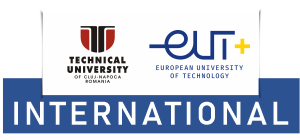Ethics traditionally understood as applied ethics is not equipped to deal with the questions posed by the relation between technological development and ecology. The application of pre-existing ethical frameworks has not led to the desired results and has been reduced to the introduction of ethics onto the engineering degree programmes. This is partly to the cultural contexts of technological innovation and on the other hand to the sheer speed of technological change. The EthiCo project is developing specific methodologies of the ethics and ecology within the education not just of engineers but all students within higher education.
The project also develops a value system and framework through philosophical research and secondly, it is developing a teacher training module for the teaching and integration of ethics into the curriculum (including engineering, natural sciences, business, arts and humanities). This teacher trainer module will be the subject of specific Intensive Study Programme (ISP) in the Technical University of Cluj-Napoca, 7-9 March, 2023. Thirdly, the project is developing a standalone student module on ethics and ecology for level 8 programmes. Fourthly, the project will host an international conference on ‘Ethics and Ecology in Technological Education.


